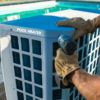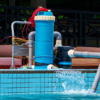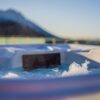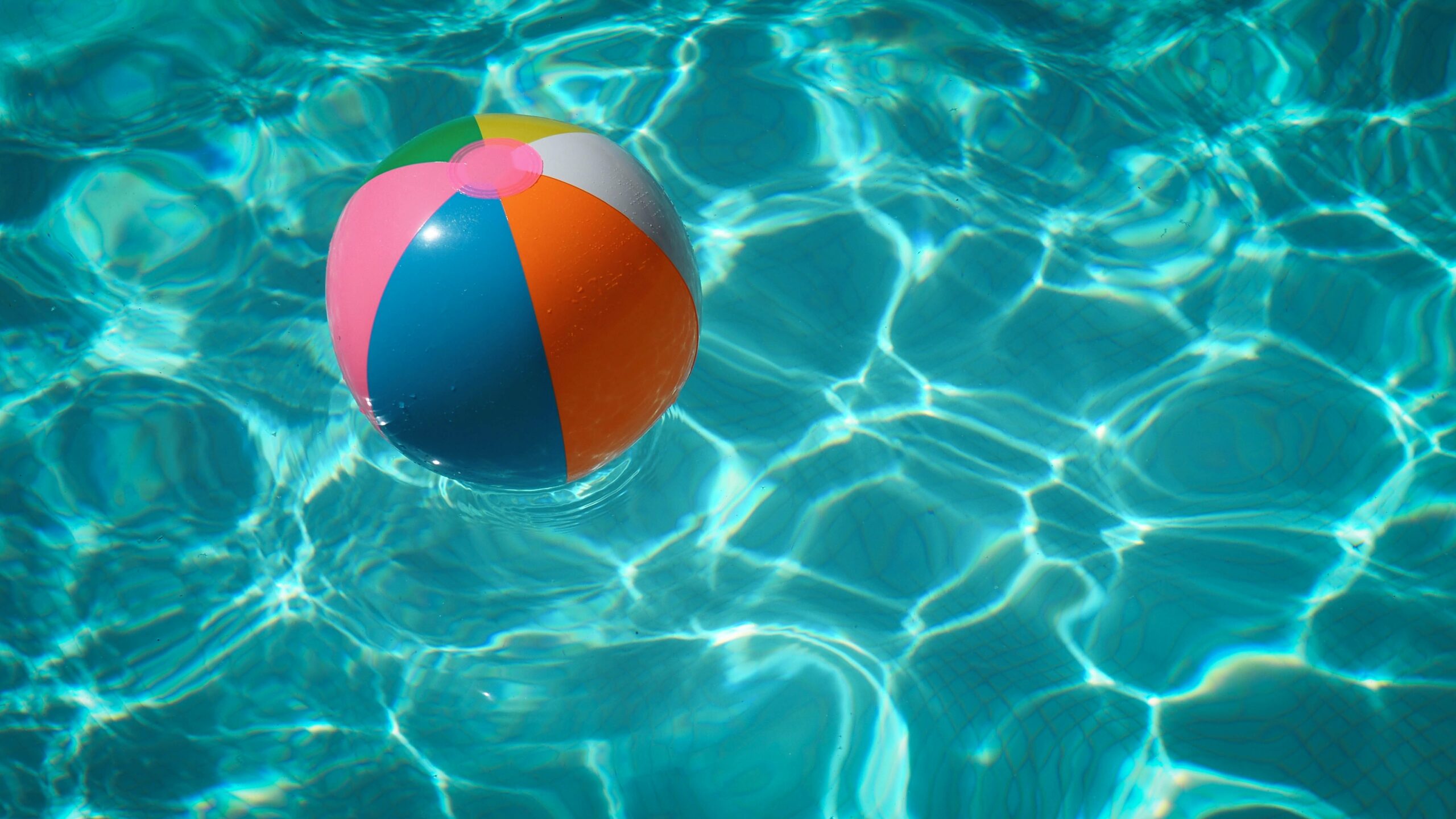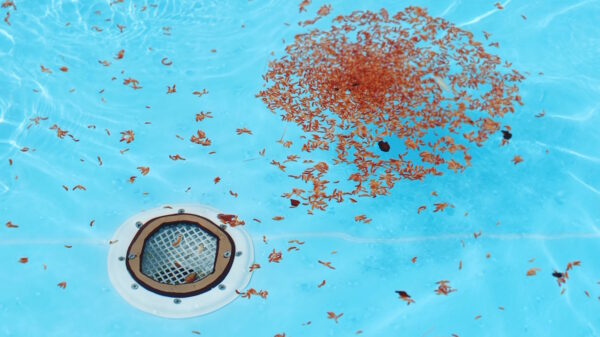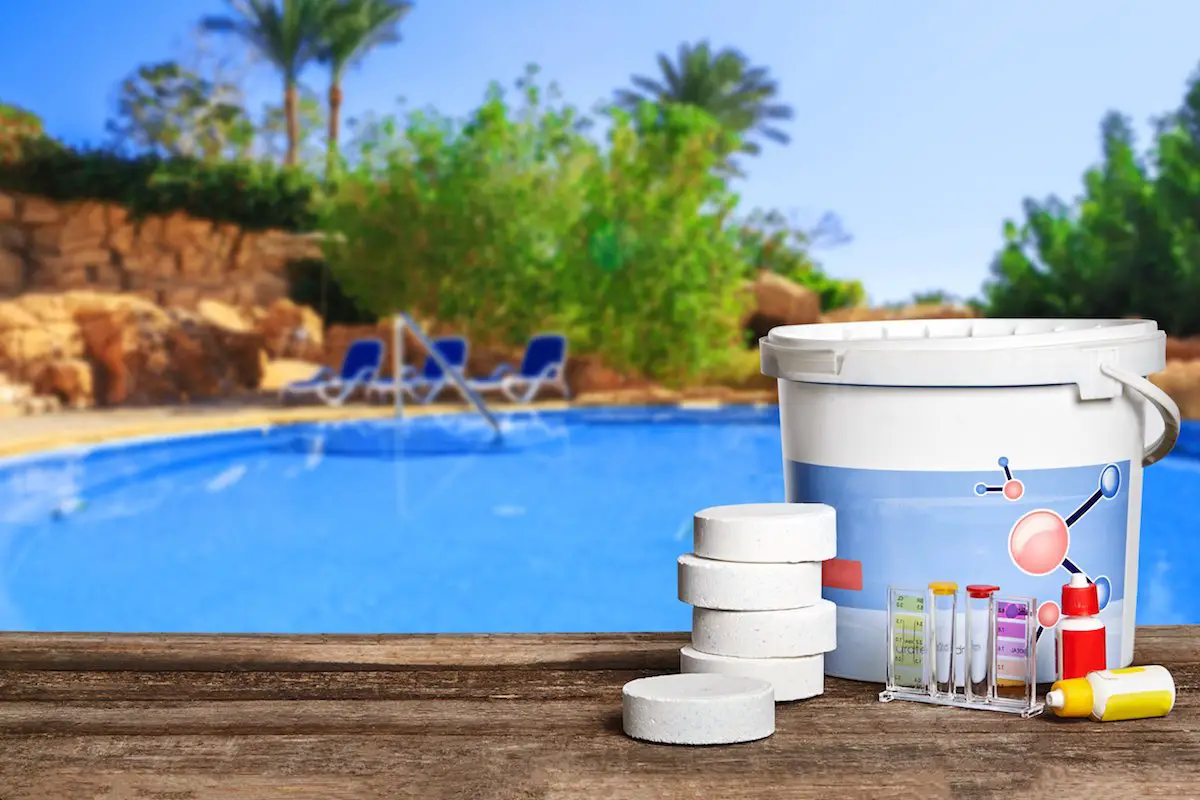Keeping Your Above Ground Pool OpenYear Round
You may own an above-ground pool and what to know if it is okay to keep it open even after the summer is over. If you want to keep your pool open to enjoy during the winter and are wondering about the best practices to ensure the smooth operation of your pool, there are some things to remember.
So, can you keep your above-ground pool up all year long? The simple answer is yes, you can keep your above-ground pool open all year round. Unfortunately, it’s the dead of winter, and there’s snow everywhere. Or if you are in Oklahoma, you’ve recently been visited by Jack Frost so it is too cold to even think about going outside for a swim.
An above-ground pool can be used during cold weather months as long as you have certain safety equipment. This includes water pumps strong enough to support salt systems running along with chlorine (if needed), covers made out of solid sheet plastic or bubbles/air pillows that have air pumps built into them, and a de-icer for breaking up any surrounding ice.
This will ensure that you do not experience any damages to your pool caused by ice or accumulating debris.

Benefit Of An Above Ground Pool During Winter
Above ground, pools can’t freeze solid like in-ground pools because they don’t have the mass or volume for them too. The water inside an above-ground pool doesn’t ever get cold enough for this to happen because even at freezing temperatures, liquid water still exists.
This means that only a thin layer of ice forms on top of most above-ground pools. This ice cap will never be more than a few centimeters thick. As long as you have your skimmer open, surface water will be removed from the pool. Since there is a hole in the ice for this to happen, you can keep swimming!
Furthermore, if you have a saltwater system in your pool, the salt will keep any ice from forming on top of it. This is because salt lowers the freezing point of water, and when mixed with the pool water it creates a brine solution that prevents this from happening.
Melting The Ice In Your Pool
So what if some water does manage to freeze inside your pool? No problem! On those really cold days where only a small amount of surface water is removed, and there isn’t an open skimmer to remove the excess liquid water, you will have a thin layer of ice inside your pool.
This isn’t so bad, because all you have to do is melt it! Using a submersible pump or any other water removal system pulls up the warmer water from below the surface ice, and melts the frozen layers of your pool.
Radiant Heat For Pools
Another unique feature of above-ground pools is the radiant heating systems available for them. Radiant heaters are used in all sorts of applications, but they work so well because of the large surface area for heat to be absorbed.
This is perfect for above-ground pools as an additional heating option! Once the heater is turned on and set, it will run nonstop until you decide to turn it off or move the heater closer to the pool. Radiant heaters are great for those pools that are out in the open or where there is no possibility of freezing.
Preventing A Freeze
If you have a really cold climate where even your pool cover or water removal system won’t work, some chemicals can be put into your pool before winter so that it doesn’t freeze inside.
These chemicals are based on antifreeze, the same thing that gets put into vehicles so they don’t freeze up during cold weather. There are two types of these antifreeze chemicals available to home pool owners:
Liquid Formulas
These liquids need to be mixed with your pool water before winter, and they prevent the water from freezing solid.
These types of antifreeze chemicals are considered non-hazardous, meaning that they won’t hurt you or the environment in any way.
Granular Formulas
These antifreeze chemicals can be put in your pool with no mixing needed, so there is less work for you.
It’s important to note that some granular formulas can be hazardous to humans and animals, so you should check with your pool distributor before using one.
Use a Winter Cover
When temperatures drop below 40°F, most above-ground pools can be kept clean by using a winter cover. These covers trap heat inside the pool through thermal heat retention methods, making sure that no heat escapes through evaporation or dissipation. They can also prevent debris from entering your swimming area.

Types of Winter Pool Covers
Winter covers are constructed from one of three materials: mesh, solid sheet plastic, or bubbles/air pillows.
Mesh Covers
Mesh covers are mesh fabric that has been coated with polyvinyl chloride (PVC) layer. The holes in the cover are very small, trapping as much heat as possible inside your pool to keep it from freezing. This type of winter cover is inexpensive and easy to install or remove yourself.
Mesh covers are the cheapest type of cover and offer very little protection against debris like leaves and twigs, which can harm your pool’s filtration system. They also can’t support much weight, so they should never be used when anyone is on the cover.
Solid Sheet Plastic Covers
If you want a stronger cover that will hold together better during a storm, saltwater systems, or when debris becomes tangled around it, then purchase a winter pool cover that is made out of solid sheet plastic. Solid sheet plastic covers are more expensive than mesh covers because they do not allow any light through.
They also completely block out all sunlight, which is important because even small amounts of this sun during winter will raise the temperature of your water enough to damage your above-ground pool shell.
These covers do require an air pump to keep them afloat though. You may need to switch out your filter cartridge depending on how cold it gets outside.
The colder the temperature, the bigger the particles in your pool’s water will be when you start using your system again in spring. This means if you don’t change your filter media for winter, all those particles could get stuck inside your system and damage your pool’s filters.
Air Bubble Covers
Air bubble covers cost the most money because each one needs its air pump to keep it afloat. This means there is no need for you to switch out your filter cartridge during cold weather because these covers prevent debris from entering your swimming area.
In addition, they provide excellent protection against hail storms and even light snowfall. They usually have grommets throughout their edges so they can be tied down by cables, weighted objects, or anything else you might need to anchor them properly.
Furthermore, if only a few pumps are used at intervals throughout the day, they can prevent an excess build-up of heat in your pool water. This prevents problems with collecting algae or bacteria in the water.
Solar Covers
In addition to these three types of covers, there are also solar covers that have bubbles built into the material so they can collect sunlight from above and below. This warms up your pool water, which can be beneficial during the colder months.
However, these covers are only recommended for use before winter begins. If you want to remove them after winter arrives, make sure that it is done very carefully to avoid tearing or ripping the material.
On top of all this information, there are a few more tips about above-ground pool covers you should know. First, make sure the cover is completely clean and free from any chemicals or debris before you place it on top of your pool.
This will prevent it from damaging or even destroying the quality of your swimming area during winter. Always use care when removing your cover by first loosening all its ties and folding it in half, rather than pulling up on it like a normal tarp.

Other Best Practices
To keep your pool water clean throughout winter, turn off all of its equipment, including the air pump sitting underneath the safety cover used to keep debris out. Also shut off any salt systems that might be running along with your chlorine (if they aren’t running using the same pump, that is).
Don’t Forget to Drain your Pool
Keeping your pool open during harsh weather months is a great way to enjoy and use your pool year-round. If you want to be able to keep this up for years, remember not just to drain it when the weather starts getting warm, but to always keep it clean by brushing or vacuuming the bottom, sides, and steps of your pool.
Just a little bit of prevention during the warmer months will help ensure that your pool is in good working condition when you want to use it again!


